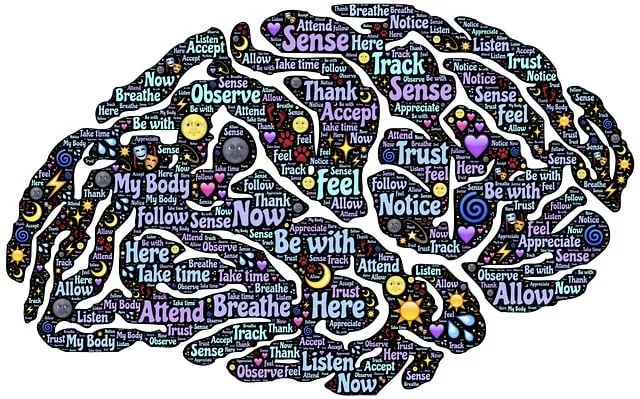Resilience, flexibility, and mastery (RFM) are key to overcoming life's challenges and improving mental well-being. Kaiser in Denver offers comprehensive inpatient mental health services that integrate RFM principles, empowering patients with practical tools for managing stress and fostering recovery. By combining exercises like mindfulness, cognitive reframing, and creative expression with assessment tools tracking tangible improvements, Kaiser enhances patient care and creates a supportive healing environment.
“Mental health resilience is a vital aspect of overall well-being, especially in urban centers like Denver. This article explores an innovative approach to enhancing resilience through RFM (Resilience, Flexibility, and Mastery) exercises, focusing on their application in inpatient mental health care. We delve into the significance of such programs, particularly within Kaiser’s framework, which offers specialized services in Denver. By implementing structured resilience-building techniques, hospitals can empower individuals to navigate challenges effectively, ultimately improving patient outcomes.”
- Understanding RFM and Its Role in Mental Health Resilience
- The Need for Inpatient Mental Health Services in Denver
- Kaiser's Approach to Inpatient Mental Health Care
- Implementing Resilience-Building Exercises: A Step-by-Step Guide
- Measuring Success: Evaluating the Impact of RFM Programs
Understanding RFM and Its Role in Mental Health Resilience

Resilience is a vital aspect of mental health, enabling individuals to navigate life’s challenges and setbacks with inner strength. The RFM (Resilience, Flexibility, and Mastery) model offers a comprehensive framework for fostering resilience. This approach recognizes that building resilience involves not just coping with stress but also developing adaptive strategies that enhance overall well-being. By focusing on these three key components, individuals can cultivate coping skills and emotional regulation, which are essential for maintaining mental health, especially in demanding environments like urban centers like Denver, where access to quality care, such as inpatient mental health services provided by Kaiser, is crucial.
Understanding RFM involves recognizing that flexibility allows individuals to adapt to changing circumstances, while mastery equips them with the skills to manage and overcome obstacles. This process encourages a proactive approach to mental health, empowering folks to take charge of their emotional well-being. The goal is not just to survive stressful situations but to thrive by developing inner strength that enables effective coping, especially in challenging environments where resilience is tested.
The Need for Inpatient Mental Health Services in Denver

Denver, a vibrant metropolis known for its bustling landscape, faces a growing challenge: addressing the rising need for inpatient mental health services. As folks navigate their daily routines, many struggle with invisible battles, such as depression and anxiety. In light of this, Kaiser and other healthcare providers in Denver are increasingly recognizing the importance of comprehensive solutions.
The demand for specialized care is evident, particularly among healthcare providers themselves who often face burnout prevention strategies. Given the demanding nature of the profession, emotional regulation is crucial. By offering inpatient mental health services, facilities like Kaiser can provide a safe space for individuals to confront and manage their mental health challenges head-on, fostering recovery and promoting overall well-being in the heart of Denver’s dynamic community.
Kaiser's Approach to Inpatient Mental Health Care

Kaiser’s Approach to Inpatient Mental Health Care in Denver focuses on a holistic and tailored strategy for patient recovery. Their model integrates various resilience-building exercises and emotional well-being promotion techniques within their inpatient program, ensuring comprehensive care. Beyond traditional therapy, Kaiser incorporates innovative methods such as mindfulness practices, social skills training, and conflict resolution techniques to empower patients with practical tools for managing mental health challenges.
This approach emphasizes the importance of empathy building strategies, fostering supportive relationships among patients and staff. By creating a nurturing environment, Kaiser aims to facilitate rapid recovery and successful transitions out of inpatient care. Their dedicated team works collaboratively to address individual needs, leveraging evidence-based practices alongside compassionate care, thereby setting a benchmark for effective mental health treatment in Denver.
Implementing Resilience-Building Exercises: A Step-by-Step Guide

Implementing Resilience-Building Exercises: A Step-by-Step Guide
At Kaiser’s inpatient mental health facility in Denver, resilience is viewed as a cornerstone of holistic healing. To integrate resilience-building exercises, start by identifying specific areas where these practices can be incorporated into daily routines. This might involve collaborating with the clinical team to embed activities that foster communication strategies and compassion cultivation practices. Engage all stakeholders—from medical staff to support personnel—to ensure a unified approach.
Next, tailor exercises to meet diverse patient needs. Some may benefit from mindfulness meditation focusing on positive thinking and stress reduction. Others might require more structured activities like cognitive reframing workshops or creative expression therapies. Offer a range of options while providing clear instructions and supportive environments. Regularly assess the impact of these exercises through feedback mechanisms, adjusting the program as needed to maximize effectiveness.
Measuring Success: Evaluating the Impact of RFM Programs

Measuring the success of Resilience-Focused Medicine (RFM) programs is essential to understanding their impact on mental health care. Evaluating RFM’s effectiveness goes beyond simply tracking participant attendance or satisfaction; it involves delving into tangible improvements in patients’ lives. By employing robust measurement tools, such as pre and post-program assessments, healthcare providers can gauge changes in symptoms of anxiety and depression, stress levels, and overall resilience.
For instance, institutions like Kaiser in Denver, known for its inpatient mental health services, could implement comprehensive risk assessment frameworks to track patients’ progress. These assessments, coupled with qualitative feedback from both patients and mental health professionals, provide valuable insights into the program’s success. Additionally, examining the adoption of conflict resolution techniques within these programs can shed light on improved patient-provider interactions, fostering a more supportive healing environment.
The implementation of Resilient Factor Model (RFM) and resilience-building exercises in inpatient mental health care, as demonstrated by Kaiser’s innovative approach in Denver, offers a promising path forward. By integrating these strategies, mental health facilities can enhance patient outcomes, improve coping mechanisms, and foster a sense of well-being. The step-by-step guide provided ensures that professionals can effectively introduce resilience-building activities, while measurement tools allow for the evaluation of program success. This comprehensive approach has the potential to revolutionize inpatient care, making it more accessible and beneficial for individuals seeking mental health support in Denver and beyond.






